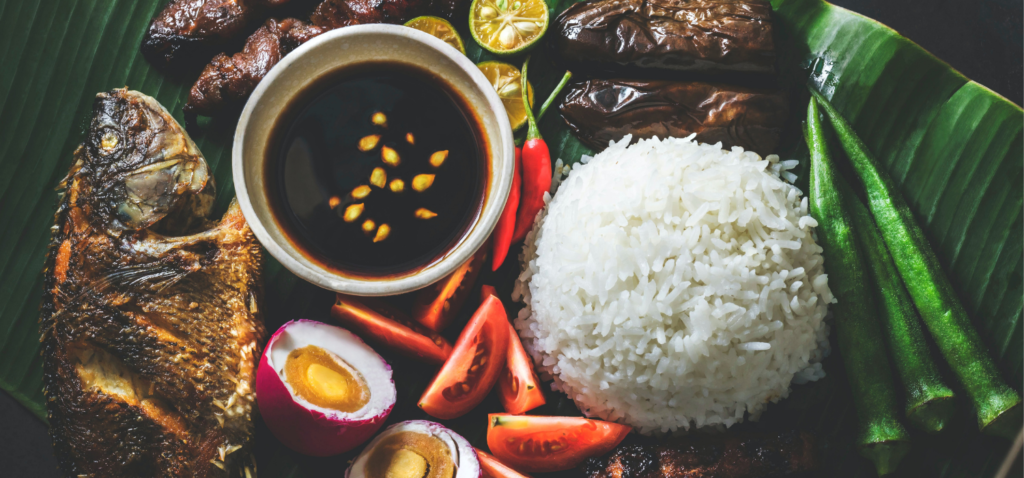The Government of the Philippines, through the Bureau of Animal Industry (BAI) and the National Meat Inspection Service (NMIS), sets strict rules regarding the importation of frozen meat, food and related products in general. The most important document about meat trading in the Philippines is The Meat Inspection Code. It contains regulations about meat trade restrictions, particularly about sanitary and quality standards of imported frozen meat in the Philippines.
In addition to hygiene and health regulations, the Government allows imports only from certain approved countries and only from foreign meat establishments accredited by the Department of Agriculture. These countries may vary over time due to the current sanitary situation.
On their side, importers in the Philippines must be licensed by NMIS and apply for a SPS import clearance issued for each shipment. Each shipment can be subject to arrival controls by meat inspectors designated by NMIS.
Local meat traders in the Philippines must indicate the date of meat production for all types of products and purposes. The traceability of meat must be guaranteed and demonstrable through transactions and labels.Meat can only be sourced from accredited professionals.
Even if it is already packaged and destined for retail, the local meat seller must be able to show the necessary certificate, which can always be checked by the designated meat inspectors.
Packaging and labeling are essential for importing and selling meat and must follow strict rules regarding both the type of materials used and the health standards of cleanliness and care. Packaging is important to ensure that the meat is not contaminated by external agents. Similarly, the label must always lead to an authorized producer.
The Meat Inspection Code of The Philippines also has well-established hygiene standards for both meat handling and the hygiene standards that the local producer or butcher must adhere to in order to not contaminate food in the workplace.
Philippines trade standard specifications for meat are important to protect the health and welfare to ensure safe meat from farm to table. That’s the reason why the controls are so stringent.
The Meat Inspection Code of The Philippines
The Meat Inspection Code of The Philippines ensures food security and provides sanitary and quality standards. In addition, it is essential to harmonize the regulations issued and to encourage investment.
Meat establishments need to be authorized by the National Meat Inspection Service, in order to slaughter, process, store, sell, prepare or handle meat and meat products.
The National Meat Inspection Code of The Philippines also indicates rules and regulations governing meat inspection in the Philippines, it involves two different moments: ante-mortem inspection and post-mortem inspection.
Ante-mortem inspection is divided into four sections, but summing up, inspectors have to examine the method for slaughtering and handling animals.
Post-mortem inspections refer to all the analyses and examinations conducted on the carcasses of the food animals.
Of course, also imported meat products are subject to examination by NMIS’s inspectors, only after being released by the National Veterinary Quarantine Service.
The Meat Inspection Code of The Philippines also defines the guidelines for the traders who export meat products and commodities into the country. A chapter of the code is dedicated to labeling requirements because the traceability of meat products must always be guaranteed, and only meat products which have passed the examination can be labeled and destined for human consumption.
Other relevant chapters of the Code are:
- sanitation
- product quality and safety
- product information and consumer awareness
- prohibited acts
- access and examination
You can read the complete act here.
Barriers to meat trade
Depending on the type of product you want to import into the Philippines, you need to consider some aspects, both phytosanitary and economic.
In addition to the Meat Inspection Code, it is important to take into account the taxation that the government applies on some food products, and in some cases the controls on the maximum quantity that it imposes on imported products.
In addition to economic taxes, however, it is important to consider non-tariff barriers that may be required for various reasons, for example for health reasons or to stimulate domestic production.
The National Meat Inspection Commission is designed to carry out the inspection operations upon the arrival of imported meat: when the product arrives by container, whether by air or sea, checks are carried out on the products according to the legislation and the code.
The procedure for importing meat into the Philippines is quite strict: the suppliers from which a trading company can obtain the products must be expressly indicated by the Philippine authorities and must not be subject to any restrictions.
After that, once the frozen meat supplier / trader has purchased the product, it can sell them to frozen meat importers in the Philippines (industries or distributors), who will issue a SPS import clearance to allow the consignment to be shipped to the designated destination port. The main ports in the Philippines are Manila, Cebu and Subic.
Athena in recent years has had a strong growth in the supply of meat in the Philippines, being able to rely on a vast network of dependable suppliers and a wide range of possibilities for customers, who can choose both the brand and the desired frozen meat product.
This allows Athena to always have the best option for their customers’ needs, even if there is a temporary ban, Athena will endeavor to find suppliers in other countries in order to achieve the best result.
Athena’s agile and streamlined structure allows it to efficiently and quickly take care of shipment management and all the necessary paperwork, and it always takes care about the types of packaging required for shipments.
Countries with meat trade restrictions
The Department of Agriculture of the Philippines, through its orders, can impose temporary meat trade restrictions on the import of meat from certain countries, mainly due to health issues, regarding diseases such as African swine Fever, Avian Flu or BSE. The ban on these countries is temporary and LGUs will monitor the sale and import of meat.
The emergency will be monitored by the relevant bodies and the ban may be suspended or extended, depending on the results.
The Philippines have issued pork meat trade restrictions due to ASF to countries such as Zimbabwe and Malaysia, regarding a temporary ban on pork due to African swine fever.
The Philippines’ recent beef ban on Canada has been lifted since the critical case that had been found has been isolated, and the emergency has come to an end. Other recent cases of temporary bans have been related to chicken from The Netherlands and pork from Germany.
The Government, as in the case of Malaysia, can order the confiscation of commodity ships. Recently, the ASF outbreak has caused a halt to imports from nearly 10 countries, including Italy and Thailand, with many problems for both importers and domestic producers.
Types of meat not allowed for trading in the Philippines
Types of meat not allowed for trading change from time to time according to the international health situation: in general, it will be up to the competent bodies, such as the Department of Agriculture (DA) – Bureau of Animal Industry (BAI) to decide according to the current situation.
In recent years, however, the Philippines decided to ease some taxation on specific foods like chicken, turkey and pork because of domestic shortages.
By lowering taxes, countries like the US and Spain have been able to export more products to respond to the Philippines’ internal demand.

Sanitary measures about imported frozen meat
Frozen meat importers in the Philippines must comply exactly with the National Meat Inspection Code and any restrictive measures. Imported frozen meat, before being sold, is subject to many examinations and inspections by authorized inspectors.
Imported frozen meat suppliers in the Philippines must make sure to purchase goods with packaging allowed by local authorities, mainly cartons for retail or polyblocks for industries. In general, the packaging must be faultless, not contaminated and the packaging must follow standards that do not alter the properties of the food.
As far as handling is concerned, it is essential that the temperature of the meat never exceeds zero degrees Celsius in local Filipino markets, both during transport and sale.
Meat must be stored in display freezers or chest freezers in order not to compromise the quality of the product.
Even when cutting the meat into smaller pieces for retail (in approved establishments), the temperature must be controlled.
Want to know more about Athena meat trading services for the Philippines? Please, contact us by carolina@athena-meat.com

